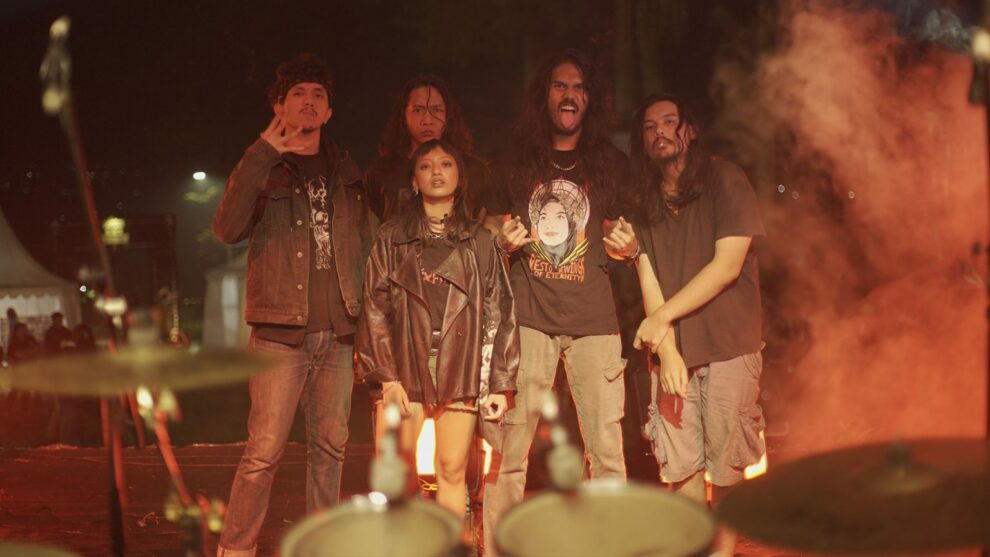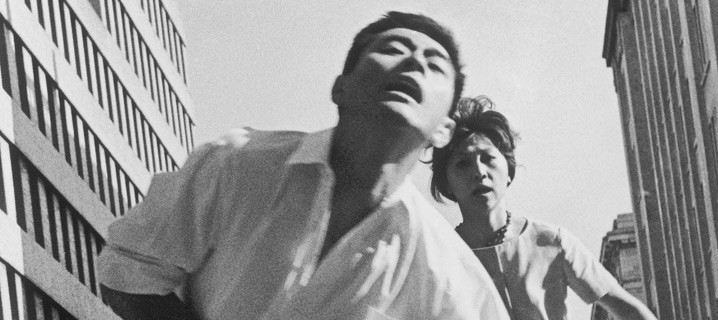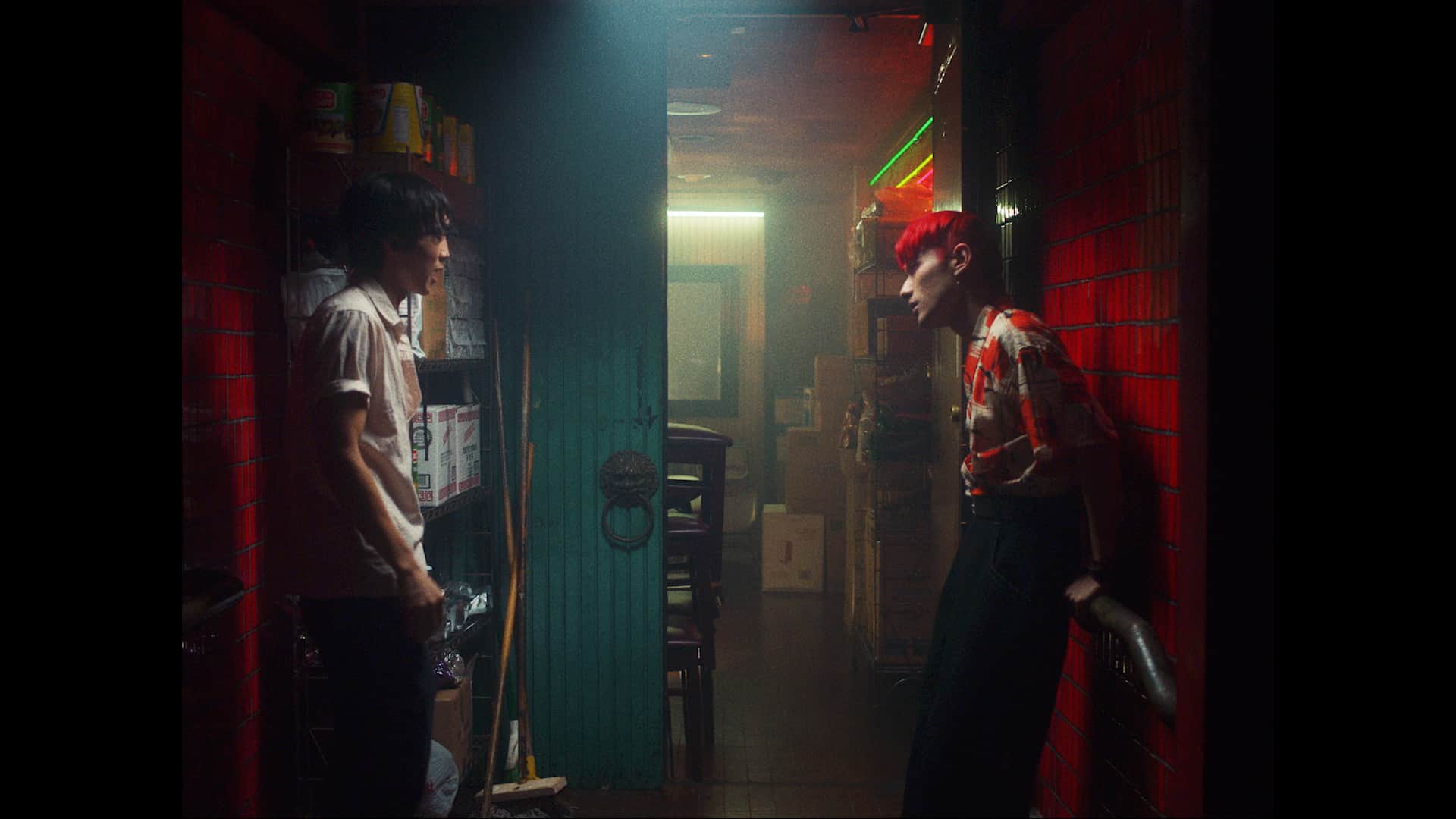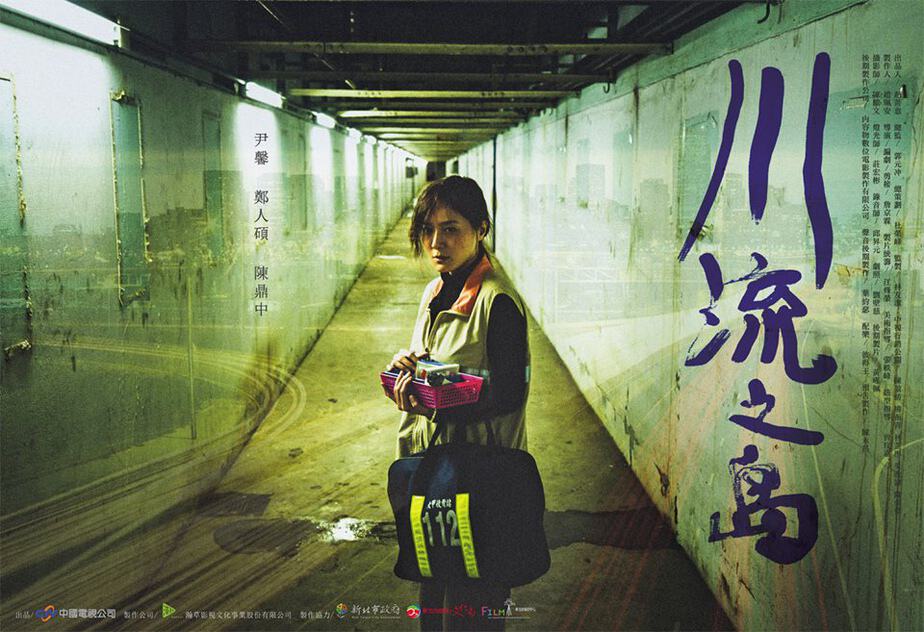by Paweł Mizgalewicz
Is there a metal scene in Indonesia? As Adriyanto Dewo's “Galang” proves – yes, there is, for better and for worse. While the film is doing its rounds on the Indonesian festivals, and now found its way into Europe via Amsterdam's Cinemasia, it's not exactly a display of an auteur festival cinema that you might imagine. What we get seems mostly concerned with showcasing the social issue in an approachable manner. The way it looks at the scene from distance suggests that the movie might be targeted less at the metalheads and more at their concerned parents, sitting at home worried that their little pea has strayed onto a dark path. Why is there even an “issue” with metal music in the country? Well, aside from the whole controversy related to metal's extreme sound and satanic lyrics, which is probably relatable for any older Europeans, metal concerts in Indonesia are also infamous for incidents of unprofessional organization, with some events becoming extreme in the worst meaning possible – the mob going out of control and people trampling each other, the overcrowded venues devoid of oxygen and leading to people suffocating inside.
“Galang” is screening in CinemAsia

In a loud tragedy in 2008, eleven music fans died in such a way-over-capacity venue in Bandung, which led to metal activity being banned in the country for some time. That very event is the starting point of “Galang”'s story, although you're not gonna learn much about the happening itself from the film – the focus here is on a personal story of the titular character, who tries to process the trauma, grief and guilt after “allowing” his sister to go to the gig alone and never to come back. This is a story about youth having problems alright, but the film makes its stance clear that metal music is not one of the problems.
Trying to make sense of the tragedy (or maybe to plot the revenge, or feel more in contact with his deceased sister?), Galang attempts to get into the scene, posing as a metal fan and befriending the very band whose gig ended up in a stampede. The boy's complex relation with the bandmembers, their manager and a few other metalheads is the core of the movie. In a spurt of impressively wicked dark humor, the fictionalized band is named Axfiksia, putting some cruel irony on the real-story subject – but the word might have easily been the film's title, so aptly it describes its overarching themes.
Lack of air is a motive that we see returning in several scenes, but what is interesting in “Galang” is that the characters are not exactly crying for air, quite the opposite. The film openly tackles the subject of suicide, and its relation to the characters' darkest urges is very ambiguous. While we don't get to know much about their inner lives (there is a slight thread about Galang being bullied in school, for example, or the vocalist's alcoholism – but handled very shallowly), we see in their actions that these people struggle with their whole lives, and asphyxiation seems alluring to them as a way out of… whatever it is that they cannot stand anymore, certainly. There is no perfect, idealized remedy presented, as the band, while giving the outcasts a type of community, is still being fractured by conflicts.
Many metal fans will agree that the music does have a tendency to attract troubled, introspective people, so that aspect of the film rings true. Intentionally or not, the scene is not presented as the kind of place that you would love your child to end up in, so to speak. But if “Galang” is light on solutions, it succeeds at broadly painting the way in which a music genre focused on death and suffering becomes a perfect channel for those who need to speak about those subjects. It might be an event you cannot get over, or the ongoing humiliation in your daily life, or maybe you're just born this way – maybe the main conclusion of the story is that some people will just be attracted to the darkness, and they will hopefully find a way to talk about it.
It is telling that Galang pretends to be a metal fan while not really being interested in the music (asked about favorite Slayer albums, he answers with the ever-reliable “I like their early stuff”), because “Galang” the movie also doesn't seem to be drowning in love for the genre too deeply. Of course, the filmmakers did their homework. The few musical moments are unrelentingly loud, the squats and venues seem credibly arranged, the metalheads are dark, brooding, long-haired and leather-clad. Still, outside of the performance scenes, we never get to see the chemistry develop in relation to music, we don't get scenes edited in a musical beat, and never feel the charm of the bandmembers' common passion for the sounds they're allegedly making together – in the cinematic sense, those are just some people hanging out, and the subject they talk about happens to be metal.
If you're looking for a movie that will do for metal what “Inu-Oh” did for Noh theater (or “Turning Red” for 90's boysbands), this is not it. What we got is a movie that many people will be able to relate to, thanks to universal subjects like grief, family or loneliness, and for European audiences – an interesting slice-of-life look at a less-discussed subculture of a country still obviously underrepresented in global cinema.
The audience in Amsterdam also got to meet the accomplished Jakartian actress Asmara Abigail, who stands out in “Galang” as the band's manager – a petite woman with dark clothes, dark make-up and dark sense of humor surrounded by towering musicians. Abigail admitted that the director Dewo is currently in a bit of a “commission movie” phase, which he's handling skilfully, but what the actress is the most excited about is the thought of Dewo eventually coming back with a more auteur film of “his own”, for which he's already got quite a reputation in his homeland. As fine as “Galang” is, now that does sound interesting.















